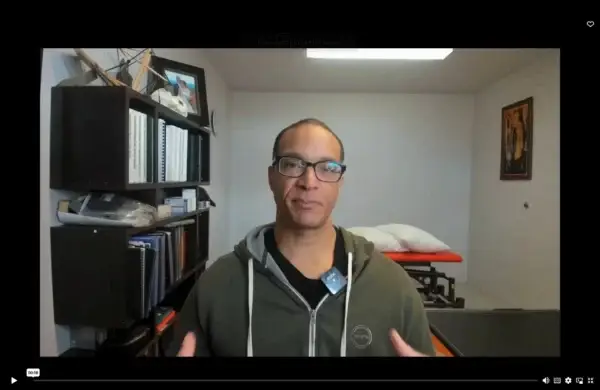
TImagine: What If Your Life Is Already “Full”?
Ever feel like your days are jam-packed—but you’re still not moving toward what you want? If you’ve ever set a passionate goal (get pain-free, run a 10K, reclaim your spine, eat better, enjoy mornings again!) but find yourself spinning, you’re not alone.
Here’s the truth:
Most people aren’t failing at goals because of willpower or talent. They’re failing because there’s literally no space for those goals to exist. Your calendar, energy, to-do list, even your mental bandwidth—all filled up with the urgent, the routine, the “shoulds” and the patterns you’ve been living on autopilot.
Why Making Space is the First (and Often Forgotten) Step
You can’t add a new habit, routine, or ambition on top of an already-full plate—at least, not for long. Trying to “layer on” healthy change without clearing space is like shoving a new couch into a packed room: something’s got to give, or you’ll end up tripping over your own life.
Analogy:
You wouldn’t try to grow a garden in a backyard covered with junk. First, clear the plot. Only then can you plant, feed, and watch anything meaningful grow.
Story: Tom’s “Schedule Overhaul” Breakthrough
Tom, a SolCore client in his fifties, wanted to train consistently and finally recover from years of back pain and fatigue. For months, he kept saying “I just don’t have time.” When we dove deeper, his calendar was stacked with work, errands, and tasks that started as “important” but had never been reconsidered.
We mapped his week and found:
- 6+ hours spent scrolling social media (often to de-stress)
- Three late-evening TV hours most nights for “wind-down” (but led to poor sleep)
- Tasks that could be delegated or batched, but were still done out of habit
Once Tom deleted or rescheduled just a few of those blocks, he made space for three 30-minute movement sessions per week, meal prepping, and even dedicated time for reflection. With space came oxygen for his goals—and within three months, he moved better, slept better, and felt proud.
The Hidden Ways We Fill Our Lives
- Commitments we never revisit: Clubs, favors, meetings that are now “automatic”
- Energy zappers: Drama, unending social feeds, multitasking, saying “yes” to requests just to be polite
- Mental clutter: Worrying, ruminating, replaying frustrations
How to Make Space—Step by Step
1. Audit Your Space (Time, Energy, Headspace)
Block out a quiet 30 minutes. List every recurring obligation—big and small. Be honest: what energizes, what drains? What really supports your next goal? What can be delegated, dropped, or rescheduled?
2. Apply the “Full Jar” Principle
If your day is a jar, filling it with sand (endless tiny tasks, distractions) leaves no room for rocks (your goals). But if you start with rocks, then pour in sand, everything fits.
- Schedule main workouts, food prep, self-care first.
- Let smaller tasks fill gaps.
3. Create Transitions
If you can’t do a full “reboot,” try sandwiching new habits onto existing routines. Example: If you always walk the dog, end with five minutes of stretching. Or pair meditation with your first cup of coffee.
4. Say “No” Boldly, “Yes” Intentionally
No to the things that don’t move you forward (even fun invites if they will sabotage your needs). Yes to routines, people, and spaces that uplift and support you.
5. Make It Visual
Use calendars, trackers, or even sticky notes to see your space for goals. If possible, physically clear out (kitchen counter for prepping, corner for stretching/yoga).
The Science of “Room to Grow”
Research in behavioral psychology shows that habit change fails most when there’s a “crowding out” effect—meaning, too many existing obligations prevent new routines from ever gaining traction. Success skyrockets when we subtract and simplify before adding.
The Emotional Side—Permission to Clear
Many clients struggle with guilt: “If I let go of this, I’m failing.” Not true. Releasing old commitments (even ones you once loved) is an act of self-respect, not neglect. Your friends, family, and work can thrive better when you’re thriving too.
When You Don’t Make Space—What Happens?
- New routines are inconsistent, rarely stick, and become a source of shame (“Why can’t I follow through?”)
- Self-care feels like “stealing time,” not a gift
- The cycle of overwhelm, burnout, and self-criticism repeats
Client Story: Maya’s “Declutter, Restore, Thrive”
Maya was a busy mom and local business leader. After a minor injury, she wanted to add physical therapy and stress relief—but always felt “jammed.” A nonjudgmental audit revealed she was still attending three committees she no longer cared about—“just because.” With guidance, she stepped down (with gratitude, not guilt), and found two extra afternoons per week for group class and reading. “I finally feel in control,” she said. “My body and mood transformed—and my family noticed, too.”
Toolbox: Your Space-Making Playbook
- Weekly review: What kept you busy last week? What actually helped?
- Start with “WHY”—What is the single most important goal for this season? Carve out room for it first.
- Remember you can’t do everything at once. Pick one or two priorities.
- Involve others. Tell them you’re clearing space for a goal—most will support (or join you!).
Ready to Plant New Seeds?
Until you clear the soil, nothing new will bloom. The first move is always subtraction, not addition!
If you want a proven structure for holistic change—one that fits your new, well-made space—start with The Ultimate Guide For A Holistic Exercises And Fitness Program. You’ll get a blueprint to declutter and re-focus, so your goals actually thrive.
It’s not just working out, it’s building a foundation for a better life.
Find out more @

Leave a Reply